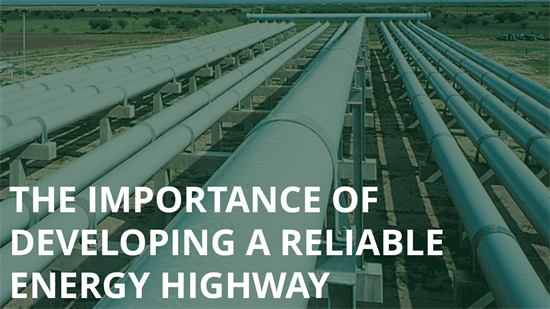BRANDED: The Importance of Developing a Reliable Energy HighwayBy Congressman Jeff Duncan (SC-03)
Washington,
March 27, 2023
The Importance of Developing a Reliable Energy Highway America’s interstate natural gas infrastructure is a key driver of job creation, growth, and global competitiveness. We must maintain a modern, flexible, and secure natural gas pipeline network in order to deliver affordable, reliable energy to Americans. Not only is natural gas a foundational fuel source, but it is also domestically produced and affordable. Demand for natural gas in the future will only increase, which heightens the need for pipelines to transport energy safely across the country. While our nation is blessed with an immeasurable store of natural gas, our pipeline infrastructure is close to reaching full capacity due to the inability to permit new pipelines because of excessive regulatory burdens. According to U.S. Energy Information Administration, in 2022, the United States added the least interstate natural gas pipeline capacity since the EIA began collecting the data in 1995. In South Carolina, we are in desperate need of increasing our pipeline infrastructure. As we grow as a state and more businesses look to make South Carolina their home, we will need to look to meet the growing energy demand. It is essential to strengthen our natural gas pipeline infrastructure to support continued growth for the Palmetto State and beyond. Congress must modernize the excessive and ineffective regulatory structure facing pipelines that provide the energy that fuels job growth. Without an adequate supply of baseload power provided by sources like natural gas, we run the risk of stifling our economy and pushing jobs overseas. We are in dire need of energy permitting reform to grow our economy and create jobs. At present, many of the existing natural gas pipelines in the U.S. are running at capacity, and additional takeaway capacity is needed to move natural gas from where it is produced to where it is consumed. Current federal permitting processes for new and expanded natural gas projects are cumbersome, often stalling development for years with duplicative reviews, burdensome approvals, and unending legal challenges. Environmental statutes have been weaponized well beyond their intended scope to block pipelines at any cost. H.R. 1, the Lower Energy Costs Act, will help address this issue by rolling back some of the red tape that impairs energy production and innovation to address the national energy crisis. Addressing the energy crisis is a top priority for House Republicans. This is why H.R. 1 focuses on increasing energy production, securing our supply chains, and streamlining regulatory burdens that make it harder to build American infrastructure and grow our economy. The American energy economy cannot thrive under the current permitting structure—it is time to create a regulatory structure that encourages innovation and unleashes American energy production. Without bold and meaningful permitting reforms for natural gas infrastructure, the United States will continue to struggle to meet its energy, economic, and climate-related goals on the global stage. Developing a reliable energy highway through strengthening and building out natural gas pipeline construction is essential to reach our American potential and allow our state and nation to support continued growth. By streamlining our permitting processes, we can unlock investment for new and improved natural gas infrastructure and provide cleaner, safer, and more reliable energy for generations to come, as well as strengthen our energy security. As Energy, Climate, and Grid Security Subcommittee Chair, I will continue advocating for policies that allow us to streamline the permitting process and strengthen our energy infrastructure to utilize our nation’s abundant natural resources and natural gas made available by the shale revolution. |
Stay Connected
Use the following link to sign up for our newsletter and get the latest news and updates directly to your inbox.


